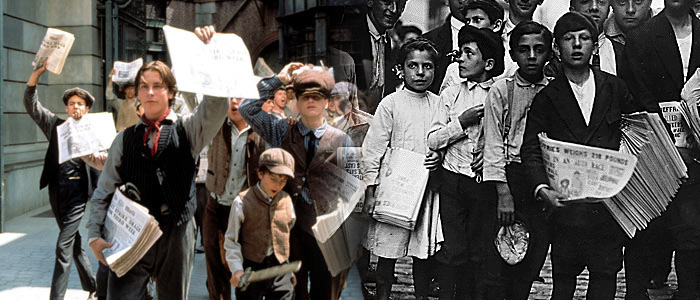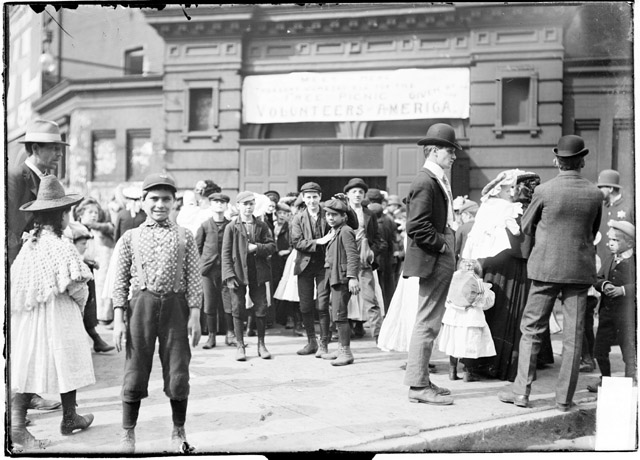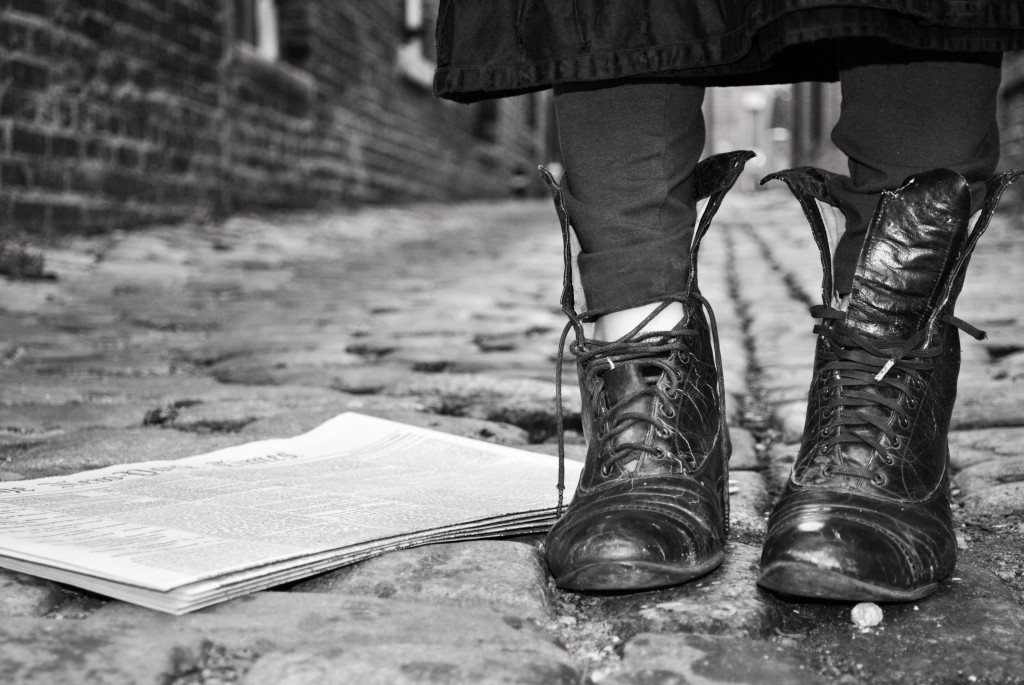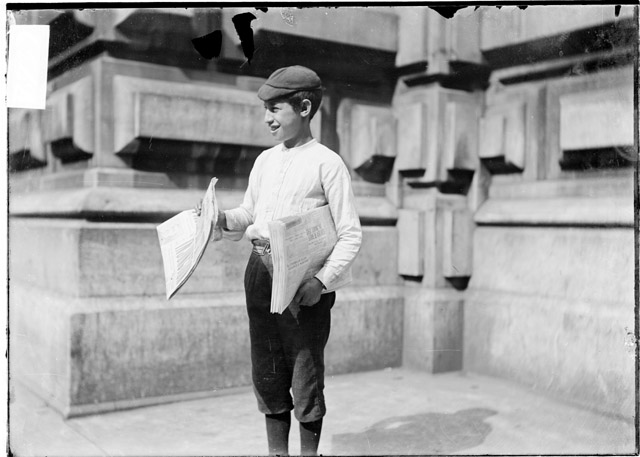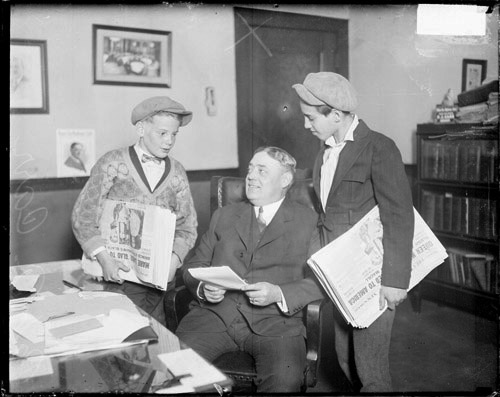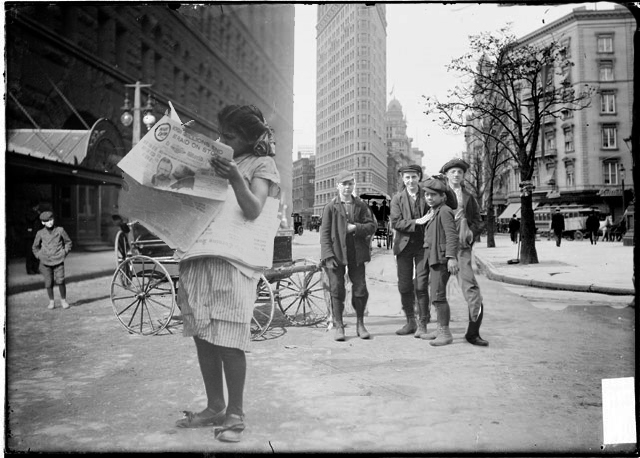Posts by Kristina
Newsies: the real story compared with the Movie/Musical
Newsies, the movie from Walt Disney Studios, was a significant influence in the writing of Calling Extra. I was ten years old when the film premiered in theaters, and I replayed my VHS so much that it wore the tape down and distorted the audio of the musical numbers. My profound interest in the actual event…
Read MoreExcerpt from Chapter 5: Vincent Boys
July 18, 1899 Morning came quickly. I was pleased that I awoke naturally and was ready to go when Grin tapped on the hatch. He was still in the same clothes from the day before, stained and dirty. We didn’t have to go very far. St. Paul’s Chapel was situated right at Park Row, or…
Read MoreExcerpt from Chapter 1: Orchard Street
July 15, 1899 The last day of my youth began with the shatter of a plate and the piercing scream of an infant. I awoke in my small tenement on 43 Orchard Street before the sun had barely stirred. The air filtered in through cracks in the wall and was bitter cold, but the upcoming…
Read MoreTimeline of the Newsboy’s Strike
In Calling Extra, Elsie’s personal stories, as well as her adventures with Grin, are interwoven into the real timeline of the 1899 newsboy strike. Below are a list of dates and events from the strike gathered together from the newspaper articles of that time. These references include the New York Times, the New York Tribune,…
Read MoreTalk like a Newsie: Newsboy Slang
Many of the newsboys at the turn of the 20th century were not schooled, and therefore lacked proper grammer. As a result, the newsies made up their own vocabulary or slang. Many of the popular slang words are used by Grin and his fellow newsies in the book. See if you can spot them among…
Read MoreRead Real Articles from the Strike
The Newsboy Strike in the summer of 1899 against the New York Journal and the New York World was well-documented by the other newspapers of the time like the New York Times. We’ve listed some exciting ones! Click to view the PDF: The first official day of the strike: July 21 1899 The strike carries on: July…
Read More